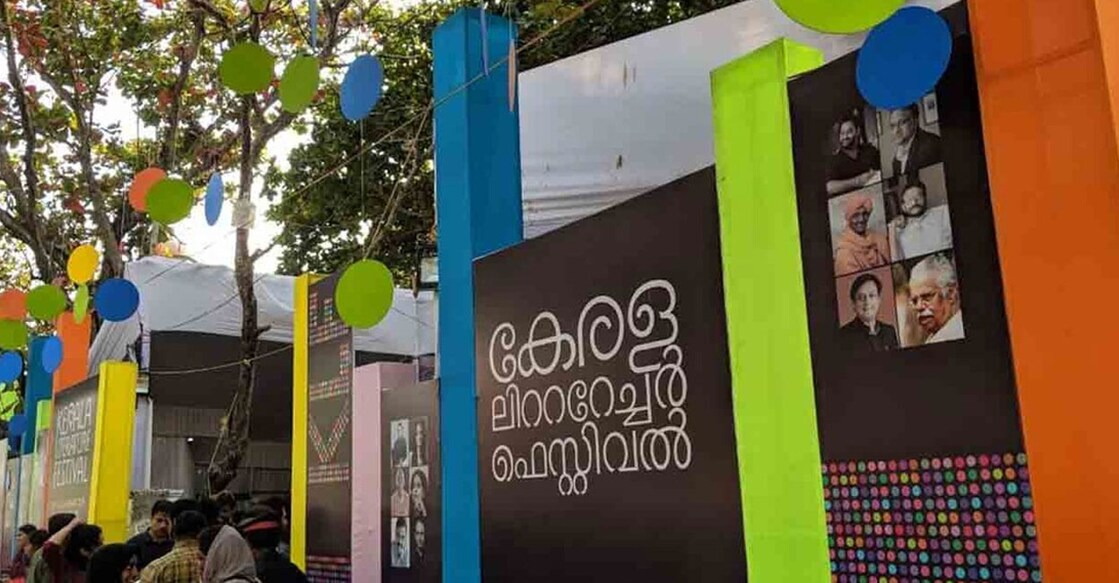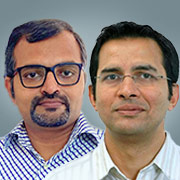Column | Lit Fests add new flavour to Kerala's cultural tapestry

Mail This Article
Kerala, renowned for its vibrant tapestry of religious and cultural festivals, is now witnessing a new passion: literature festivals! While celebrating books and authors is not new to Malayali society, the proliferation of ‘Lit Fests’ is something unforeseen in the past.
Interestingly, this literary enthusiasm transcends well-known Malayalam publishers, as literature academies, political organisations, universities, and even the Kerala Legislative Assembly have embraced the movement, organising curated literary festivals. A rural iteration, the Wayanad Literature Festival, was launched in 2022 with the tagline 'when the world comes to a Wayanadan village to think, listen, read, and talk'.
Drawing the literary crowd to the festival site and creating a captivating intellectual event is not only refreshing but also a promising development for many.
An intellectual buffet
Attending literary festivals is an invigorating experience for Malayali readers, akin to a buffet offering a diverse array of options, including South Indian, North Indian and continental dishes. A literary enthusiast can participate in parallel sessions, choosing from a wide array of topics such as contemporary Malayalam poetry, Indian historical novels, and reimagining global politics.
Readers have the opportunity to meet their favourite authors, interact with them, and obtain signed copies of their books. While there will be publisher book stalls, the focus is not on sales but rather on the sessions and speakers at literary festivals.
"Literary festivals are like dream events, blending different areas of knowledge into a vast world of ideas. For language and literature teachers, keeping up with topics beyond the syllabus and having a global or national perspective can be challenging. However, literary festivals emerge as a simple solution to this complex puzzle," explains P K Suresh, a retired school teacher who frequently attends these events.
Traditionally, what Malayalis have been familiar with are 'pusthaka mela' or book fairs, where books are displayed for sale in halls in small-to-medium towns and major cities, often offered at a discount. Literary functions such as book releases or talks by authors are occasionally organised in connection with these book fairs, but they primarily serve as sales events.
However, literary festivals are by no means free from criticism. Serious concerns arise regarding 'representation' in terms of gender and caste bias in the selection of speakers and allocation of time. In a recent Facebook post, Prof. Shaji Jacob, a prominent literary critic, highlighted that 'literature' is given limited prominence in literary festivals, as the focus tends to be on popular topics like film and music. He emphasises that literature and writers receive more significance at literary festivals organised outside Kerala.
Apart from the concerns mentioned, a disturbing aspect of these Lit Fests is their ‘disconnect’ with the realities in the publishing industry, despite being important events showcasing celebrity authors and books.
Industry realities
Although Malayalis have a rich literary tradition to boast of, the publishing industry in Kerala has much to catch up on, with many 'outdated' practices still prevalent. The sector is traditionally characterised by a winner-takes-all scenario, with the top publishers and writers claiming a substantial share of the money and reputation, leaving minimal incentives for up-and-coming writers.
Despite the presence of royalty clauses in book contracts, Malayalam publishers typically exhibit reluctance in disbursing payments to non-celebrity authors. Most firms don't even send feedback or acknowledgement of receipt to first-time writers who submit their manuscripts.
Additionally, it is a reality that except for a couple of prominent ones, the majority of Malayalam publishing houses have succumbed to 'vanity publishing', accepting money from authors to publish their books. This practice stands in stark contrast to the norms observed in the industry in many advanced countries.
Moving beyond payment concerns, even prominent Malayalam publishers provide little editorial assistance to authors, significantly impacting the quality of the books. Renowned writer Benyamin brought attention to this issue at a literary festival, emphasising that the quality of Malayalam writers could rise to a higher level with substantial editorial support, similar to that seen in English publishing.
In India, English publishers largely operate under the principle that 'books can be made better,' often subjecting the works of even top authors to extensive editing before publication.
Perhaps the most poignant example of the 'archaic practices' in the Malayalam publishing industry is the secondary position occupied by translators. Except for a few award winners, both Malayalam and English translators in Kerala are typically paid exceedingly low. Nevertheless, it is encouraging to see translators gaining visibility in literary festivals and being invited as speakers for multiple sessions.
In the past, Kerala witnessed efforts to correct the flawed tendencies in the publishing industry. Kerala holds the distinction of being the birthplace of Sahithya Pravarthaka Sahakarana Sangham (SPCS) even before Indian Independence, which was the first writer's cooperative society established for the publication of their works. However, SPCS has lost momentum for a considerable period now.
Unless the industry revamps itself, literature will always remain subservient to its 'big brother,' the cinema industry. Furthermore, Malayalam writers with great potential will continue to aspire to pen screenplays, dialogues, and lyrics for commercial movies to make a living.
Miles to go
It is worth recalling memories from one of the author's visits to the Frankfurt Book Fair, which remains the world's largest trade fair in terms of the number of publishing companies represented. In addition to the usual author discussions, bookish panels and other literary events, the fair also fosters a strong connection between literature and the publishing industry by providing opportunities to connect and strike deals with publishers, authors, agents and translators from around the world.
For a reader or an aspiring writer, it offers an opportunity to observe industry developments, learn about new technologies, and discover emerging business platforms. Book fairs in Europe and North America are not merely literary events; rather, they are the linchpins around which the publishing industry operates.
Literature festivals present a new opportunity to rejuvenate the ailing publishing industry in Kerala, and undoubtedly, Malayalam literature, with its rich legacies, deserves a better publishing scene. Lit Fests may well serve as the forerunners for change.
(Social anthropologist and novelist Thomas Sajan and US-trained neurologist Titto Idicula, based in Norway, write on politics, culture, economy, and medicine.)


